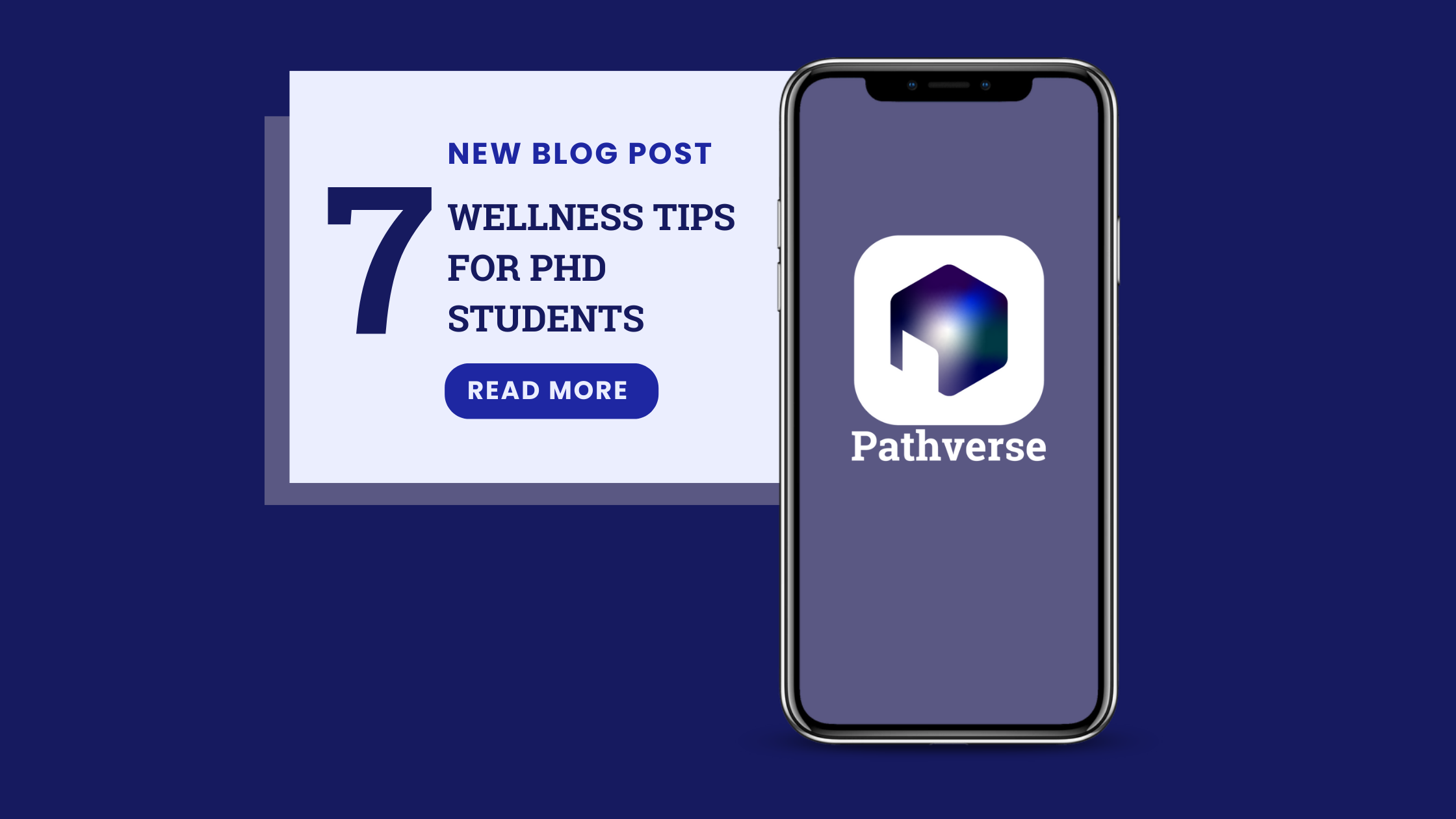
7 Essential Wellness Tips for Ph.D. Students
Pursuing a Ph.D. is a demanding and challenging path, and it is essential to prioritize your self-care to maintain physical and mental well-being. Our team at Pathverse knows that all too well and that’s why we compiled 7 wellness tips for Ph.D. students like you!
Make sure you read our article on how to identify and beat burnout.
1. Prioritize Sleep: Getting enough sleep is crucial to maintain your physical and mental health. Ph.D. students often have demanding schedules and deadlines, which can lead to irregular sleep patterns. It’s important you establish a regular sleep routine and aim for 7-9 hours of sleep per night.
Tip: Try to create a “Sleep Hygiene” routine. ‘Sleep hygiene’ refers to healthy habits, behaviours and environmental factors that can be adjusted to help you have a good night’s sleep. Some sleeping problems are often caused by bad sleep habits reinforced over years or even decades. This might include avoiding screen time before bedtime or creating a comfortable and clean environment to ensure you get restful sleep.
2. Exercise: Regular exercise can help reduce your stress and improve physical health. Ph.D. students often spend long hours sitting at a desk, which can be detrimental to physical health. Incorporating regular exercise into your routine, such as walking, running, or yoga, can help improve overall health and reduce your stress levels.
Tip: When physically able, try taking the stairs instead of the elevator to add more movement to your day. Alternatively, try setting a timer for every 35 minutes. Use this time to walk around and stretch throughout your day! Not only will this increase your movement, but it will also help you focus.
3. Take Breaks: Students often work long hours, but it’s necessary to take regular breaks in order to prevent burnout. Taking short breaks throughout your day, such as going for a walk, doing a puzzle, or listening to music, can help reduce stress and increase your productivity.
Tip: Check out our Spotify study playlists! Set a timer to stop your music every 30 minutes. When it stops, look away from your screen, take a sip of water, and do a quick stretch!
4. Practice Mindfulness: Mindfulness practices, such as meditation or deep breathing exercises, can help reduce stress and improve your mental clarity. Taking a few minutes each day to practice mindfulness can help improve your focus and reduce anxiety.
Tip: Put a sticky note on your laptop. Every time you look at it, make sure to take a deep slow breath in and out.
5. Connect with Others: Pursuing your Ph.D. can be isolating, but connecting with others can help improve your mental health and reduce stress. Joining a social or academic group, such as a book club or writing group, can provide opportunities for social interaction and support.
Tip: Twitter and Instagram have a busy academic scene. Why not follow other researchers who post inspirational and realistic content about their lives?
6. Treat Yourself: Taking time to treat yourself can help reduce stress and improve mood. Whether it’s indulging in a favorite meal or activity, treating yourself to a massage, or buying a new item, finding small ways to treat yourself can improve overall well-being.
Tip: Choose one day a week or a month to spoil yourself! That might mean having your favourite snack, having a relaxing bath… or having your favourite snack in the bath!
7. Set Boundaries: Students often have demanding schedules, but it is so important to set boundaries to prevent burnout. Setting limits on your work hours and saying no to additional commitments can help prevent burnout and improve your overall well-being.
Tip: Try prioritizing self-care throughout your week. That might mean one day a week completely to yourself or one day out with friends. Sometimes saying no is an act of self-love! Check out our list of essential resources for students. Find more time with yourself when you simplify the research process!
Incorporating self-care ideas into your routine can help reduce stress and improve overall health. Remember, taking care of yourself is not a luxury; it is a necessity to succeed in your Ph.D. program.







